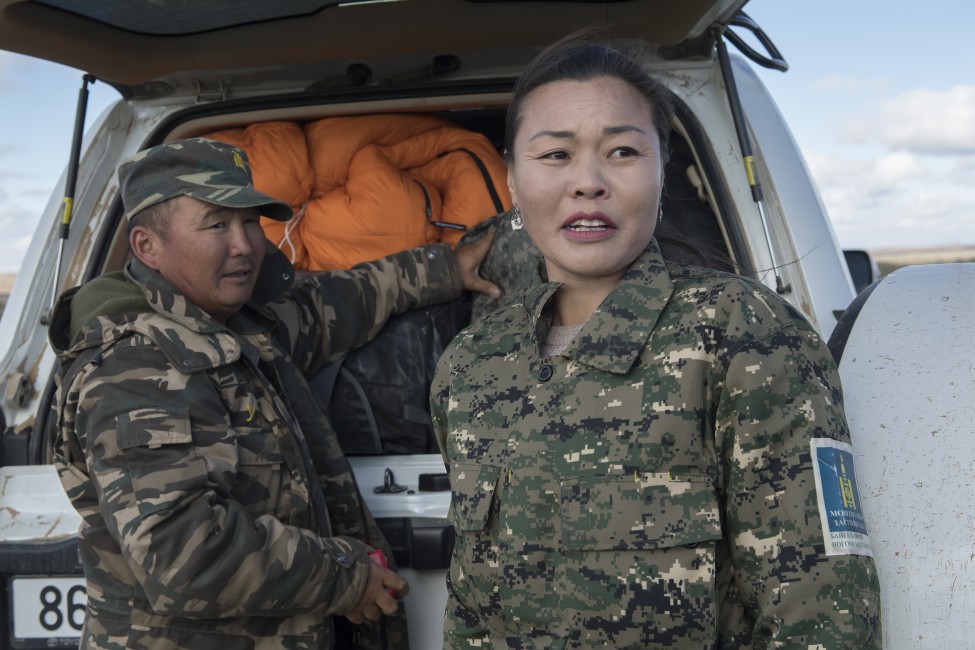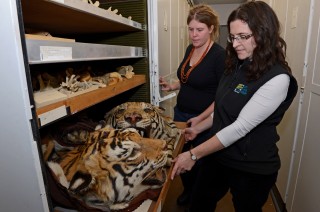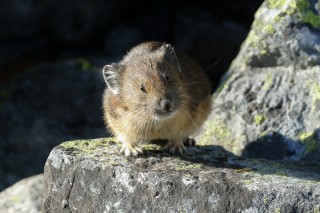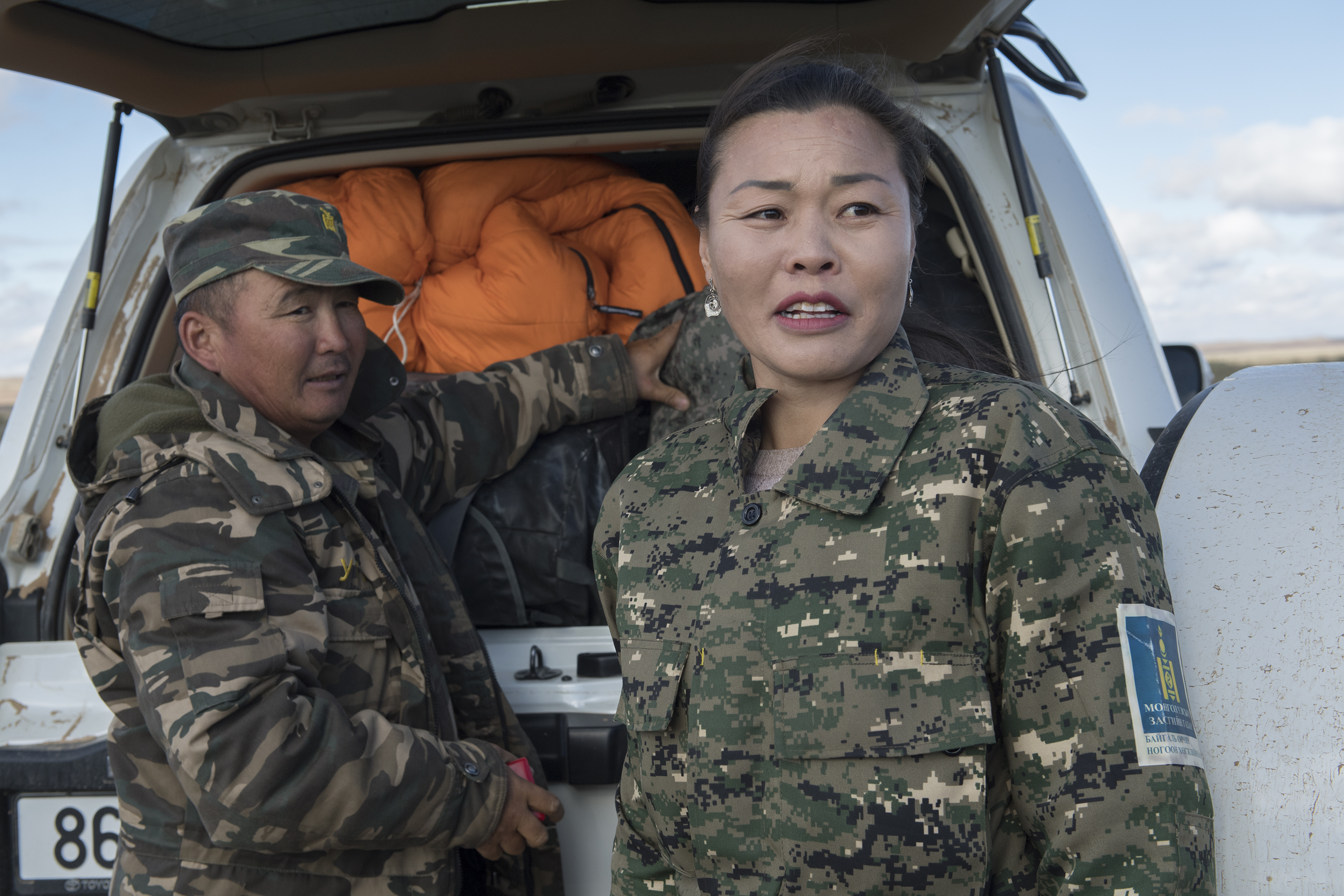
March 8, 2017
Protecting Wildlife Runs in the Family
- as seen by -
 Julie Larsen
Julie Larsen
Wolves, wild ass, mountain sheep, and snow leopards are among the wild nomads that wander the mountains, forests, and grasslands of Mongolia. In a region with some of the lowest human population densities in the world, it would seem that wildlife has few threats.
But hunting happens – including an uptick in poaching during the winter months when carcasses can remain frozen as they make their way to illegal wildlife markets. Goitered gazelles are at the top of the trade list followed by wild ass, ibex, argali sheep, and snow leopards. Their fur, meat, skin, horns, antlers, and testicles are sought after for a range of uses from traditional medicine to bushmeat.
The Wildlife Conservation Society (WCS) partners with a multi-agency inspection team, the Mobile Anti-Poaching Unit (MAPU) for the Small Gobi Protected Area (SPA) of Mongolia, that regularly patrols for poaching activities. They take the first steps toward stopping offenders.
For the past seven years, Enkhchimeg Rashnyam has been a ranger with the MAPU. Her duties include car checks at vantage points, monitoring tip hotlines, and riding motorcycles to inspect the area.
JLM: Why did you choose this career path?
ER: I developed a passion for being a ranger because my parents loved the area with its unique wildlife. I started helping to investigate poaching activities when I was 16. My father, Rashnyam, was a ranger for the SPA for 22 years. I often joined him during monitoring to see Mongolia’s nature in this part of my country. When my father passed away, I was appointed to continue in his position. The area we patrol is located at the border with China. My mother, Sukhee, has been a member of Mongolia’s Border Defense since 1980. She works closely with border guards as they find and arrest offenders that illegally cross over from China. She also helps find domestic animals lost in the area.
JLM: What kind of anti-poaching cases have you investigated?
ER: We have recovered remains and carcasses of dead and possibly poached wildlife. When we encounter poachers with animals like goitered gazelles, their firearms are confiscated.
JLM: Why is your work important?
ER: I love the Gobi. I am proud to continue my father’s work. It is my duty to protect the wildlife that lives here. I work closely with local communities. Part of my role is to educate people in a positive manner, including the poachers, to help reduce and eliminate illegal activities.
Nikon D5




Leave a Comment